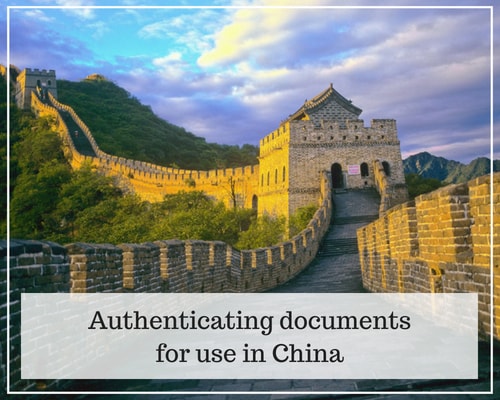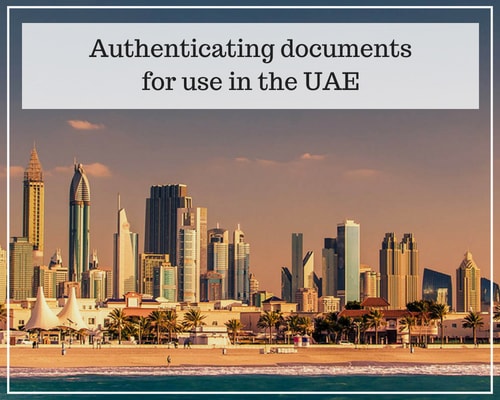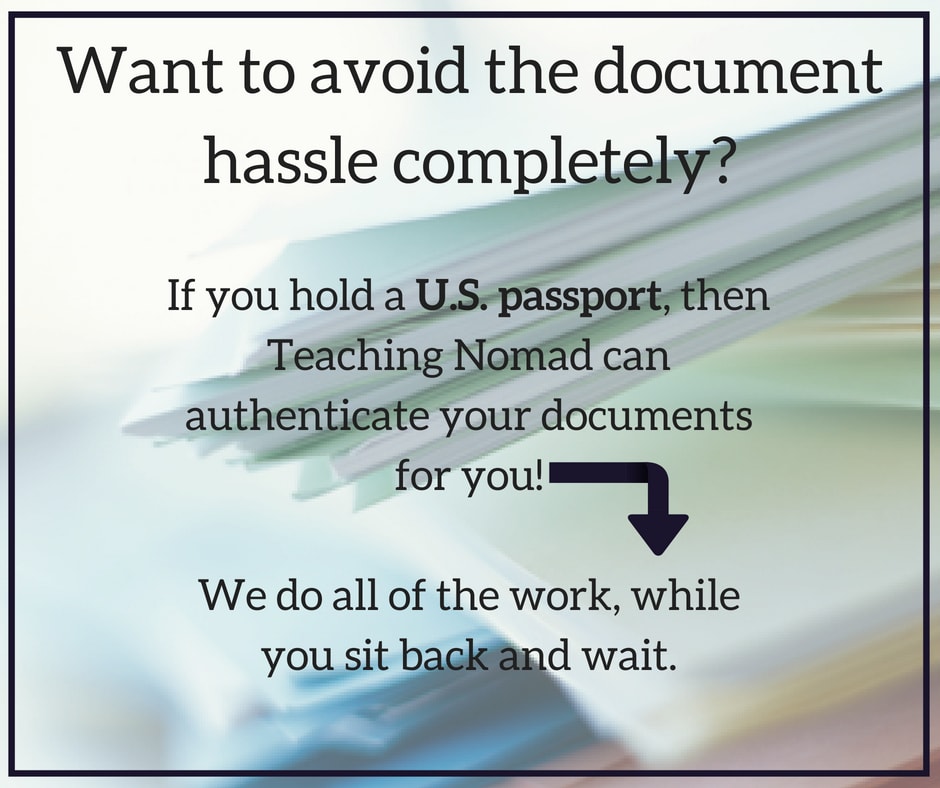Document authentication isn’t as bad as it sounds when you know what you’re doing, so we’ve created a guide to help walk you through the process.
What is document authentication, and what does it mean to you as a foreign teacher?
Document authentication, also known as attestation or legalization, is a requirement for teachers to gain a work permit in certain countries. China and the UAE are two of the main countries that require authentication, but you’ll also need similar services if you’re teaching in South Korea, Saudi Arabia, and Vietnam.
While the authentication process can be complicated, the right preparation can make document authentication very manageable.
What is the authentication of documents?
In simple terms, document authentication is when you have an official document verified by the embassy or consulate of the country where you’ll be teaching. Typically, there are a minimum of three documents that you will need to have authenticated: your bachelor’s degree, a TEFL/state teaching license, and a police/background check. However, some countries might require additional documents, including degree transcripts. If you are bringing a spouse or children, then a marriage license or birth certificates may also be required.
How do you authenticate a document?
The exact process for document authentication will vary depending on your home country and the country you will be teaching in. To be safe, make sure you discuss authentication requirements in full with your hiring school. For more specific information on document authentication for China and the UAE, you can check out our guides:
In general, there are three steps to getting your documents authenticated:
1. Visit a Notary Public/Solicitor:
Have any notary public make a copy of the original document and notarize the copy.
2. See Your Local Government:
After getting your document notarized, you will take the notarized copy and have it authenticated by your local government. In the United States, the Secretary of State would authenticate the document, while the Foreign & Commonwealth Office would review the document in the UK. The purpose of this step is to establish that the notary public in step one is a legal and registered notary in your jurisdiction..
3. Plan a Trip to Your Consulate:
Once you have your notarized copy stamped and authenticated by your local government, you will take the document to the consulate or embassy in your jurisdiction for final authentication.
In some cases, you will be able to mail your documents into the consulate for authentication. However, in most cases, the documents will have to be physically dropped off and picked up from the consulate. If this is the case, then there are a few different options:
Option 1: – Do it yourself:
If you live near a consulate or embassy, then it is possible for you to do the whole authentication process yourself, including dropping off and picking up your documents from the consulate.
Option 2: – Friends/Family:
If you do not live near your consulate, then you will need to have someone submit the documents on your behalf. One way to do this would be to have a friend or family member do the authentication for you in person. The benefit of this option is that it minimizes costs and doesn’t require you to drive or fly long distances to get it done. The risk is that your family or friends may not be experts on authentication, and the process may be delayed due to complications or scheduling issues.
Option 3: – Agency/third party:
If you can’t get to the consulate yourself and don’t have anyone who can do it for you, then there are several agencies that offer document authentication services, including Teaching Nomad. Using an agency is a great option if you are currently overseas or simply can’t get to the consulate yourself to get it done. Even if you have access to your local consulate, using a third party can be a great option if you simply want to get it done correctly, efficiently, and peacefully.
Note that if you hold a U.S. passport and need any documents authenticated for China or the UAE, Teaching Nomad will complete the entire process from start to finish**
How long does it take to authenticate documents?
If you do everything yourself, the process can be done in less than a week, assuming you do everything correctly. If you use an agency, then it may take two to three weeks. If you’re in a hurry, there are options to get it done in 4-5 business days at an added cost.
How much does document authentication cost?
The minimum cost for each document will be around $40 per document for the government processing fees. You may assume that options 1 and 2 listed above are the cheapest, but you have to account for shipping and travel costs as well. Option 3 is a bit more expensive, as you pay for the convenience of having an agency or third party do it for you, but it saves you a lot of time and stress in the end. With standard shipping, you can expect to pay anywhere from $160+ per document.
Considering that most countries will require a minimum of three documents authenticated, be prepared to budget at least $500 for document authentication.
What happens after you authenticate your documents?
Once your authenticated documents are returned to you, then you will be using these documents to apply for your work permit. This process will be completed by your school/employer. Eventually, you will use the work permit to apply for a work visa.
Do you have questions about how to authenticate a document?
Document authentication can be a stressful process, but it doesn’t have to be if you adequately prepare. Use online resources, do your own research, and speak with your school to make sure you have all the help you need in getting your documents authenticated. If you have any questions about document authentication or are interested in using Teaching Nomad to authenticate your documents, call us today. We’re here to help!



